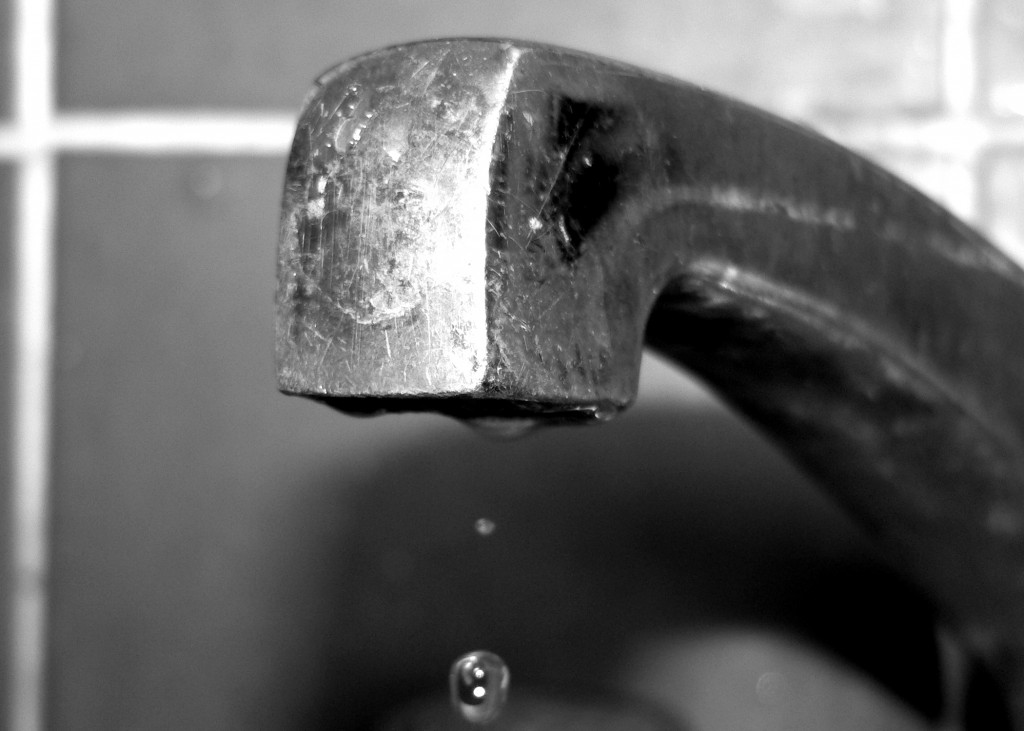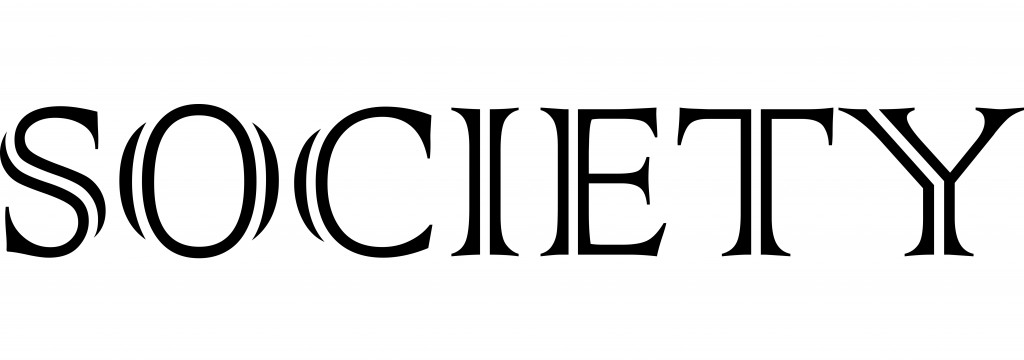
Tapping into a revenue stream; introduction of water charges was part of the EU/IMF agreement. Photo Credit: Olly Clarke
The economics of water is about trying to understand water scarcity and the values of water, as well as how to ensure that our broadly defined needs are understood, that costs and benefits of choices are clear and that the impacts of alternative pricing schedules are clarified (Joyce and Convery, 2009, p. 377).
Implying that water is an economic good is not an inherently popular position to take in a society where, under an ‘absent hand’, people have grown up without the realisation that water is, in fact, an expensive commodity to deliver (Scott, 2003, p. 2). ‘Free Water’ is by nature far from free, costing the Irish exchequer (and by default the taxpayer) over €1 billion a year to supply and maintain (Convery, 2008). Ireland has quickly climbed up the marginal cost curve owing to the fact that water supply paid for by the exchequer has provided no discouragement to excessive and often wasteful usages of water. While the funding of water via direct taxation in a progressive tax system has the feature of enabling payments to be related with one’s ability to pay, it has done little to assuage Ireland’s thirst for water, resulting in a highly inequitable system where those who consume the most water are subsidised in their use by those who use least.
Metered water charges not only reduce pressure on central and local government taxation revenues, but also have the added benefit of increasing households’ awareness of the real cost of the consumption of water resources. In this aspect, the installation of water meters can be welcomed as an improvement in efficiency, environmental protection and equitability. A previous attempt at domestic water charges in 1996 failed precisely because being unmetered, it neither promoted efficiency nor was an equitable solution, making no provision for financially supporting those of low-income in paying for water. Unsurprisingly, the domestic water charges were promptly ended on foot of a threat to a government seat from an ‘abolish water charges’ candidate (Scott, 2003, p. 1).
Yet the set up of Irish Water hardly heralded the beginning of a more economically efficient and equitable solution to Ireland’s water problems. In the first instance, the vast majority of water wastage in this country comes not from unnecessary domestic usage of water but rather from a faulty method of distribution where an estimated 41% percent of treated water is lost in leakages. The introduction of water charges has been argued as a necessary requirement in funding the repair and upgrading of our water systems, appearing to imply that this charge on water would not be so much a substitution to funding water supply via direct taxation, but rather an additional charge on top of already existing taxation. Water charges will only be equitable if customers are not also expected to fork out money in taxes which were previously used to fund water services – a “double taxation” which fails to deal with the issue of regressivity (Ibid, p. 4). Scott argued in her report for the World Bank Group that ‘[u]nless mitigating tariffs were used, reintroduction of charges would need to be accompanied by a clearly well-targeted and progressive form of compensation. Compensation would provide the stronger price signals to encourage technology change and good water-using behaviour. The options for compensation are: (1) lump-sum compensation, (2) income-tested compensation and (3) an ordinary reduction of general taxes’ (Ibid, p. 4)
These forms of compensation would help eliminate the perception of “double taxation”, while also ethically charging for water usage. Lump-sum compensation also allows for features such as non-wastable tax credits, or a negative taxation of sorts, which would help compensate lower-income households at the expense of under-compensating higher-income households, the net effect of which being a ‘net credit’ between compensation and bill for those of lower incomes (Ibid, p. 6).

(Ibid, p. 6)
While it is highly likely that the upcoming Government budgets will see a decrease in some taxes, this will be related neither to one’s usage of water or necessarily directly compensate those in the lower income quartiles who have the most difficulty paying for water.
The introduction of water metering has been on the cards for some time, and their introduction ought to have heralded a more equitable and efficient method for supplying and maintaining water supply. Yet the current provision seems rather to have been a rushed and highly cost-inefficient method of implementing water charges initiated by the EU/IMF’s Programme of Financial Support to Ireland which required that:
The government will have undertaken an independent assessment of transfer of responsibility for water services provision from local authorities to a water utility, and prepare proposals for implementation, as appropriate with a view to start charging in 2012/2013
The creation of Irish Water, stipulated to combat wastage, has been a financially wasteful exercise in the extreme, with the €4.8 million spent on ‘customer engagement and brand development’ and ‘customer validation’ in order to prepare individuals to become customers of Irish Water only part of the exorbitant costs associated with its creation. The Commission of Energy Regulation found that 15-20% of the €150 million establishment costs of Irish Water might not be reasonable, while further angst was raised by the reduction in the ‘free allowances’ for dependent children. Enda Kenny may have offered people advice in turning ‘off the tap’ when brushing your teeth as a solution to not incurring exorbitant water bills, and it is highly probable that, despite all the financial wastage incurred by the foundation of Irish Water, the net results will be a decrease in domestic water usage.
While this country is fortunate enough to have ample water resources, the implementation of charges for excessive usage would be a welcome development from a preservation perspective. Water remains an costly commodity to provide, and the wastage of water will continue to be inequitably paid for should deterrents, such as excessive usage charges, not be implemented. However, water charges presented the opportunity of not only cutting down on inefficiencies and wastage, but also improving the equitability of the financial burden associated with our water services; something the current political wrangling seems to have lost the opportunity to implement.
Original version published October, 2014. Updated version published 12 April, 2017.
Convery, F. J. (2008) The elephant in the room: meeting Dublin’s water needs – the Shannon or pricing? Comhar: Dublin.
Joyce, J. and F. Convery (2009) ‘Understanding the Economics of the Water Framework Directive’. Biology and Environment: Proceedings of the Royal Irish Academy, 109B(3), The Water Framework Directive and Ireland (November 2009), pp. 377-383.
Scott, S. (2003) ‘Abolition of Domestic Water Charges in Ireland’. Available at: http://siteresources.worldbank.org/INTWRD/903845-1112344347411/20424161/31203ARDenoteWRMEIScott.pdf (Accessed: 3 October 2014)
Ryan Ó Giobúin
Latest posts by Ryan Ó Giobúin (see all)
- Neighbourhood of strangers: AirBNB and the commodification of housing - September 17, 2018
- Not only the Rich: A Case for Fees - February 23, 2018
- The EU and the Globalization Trilemma - September 16, 2017





